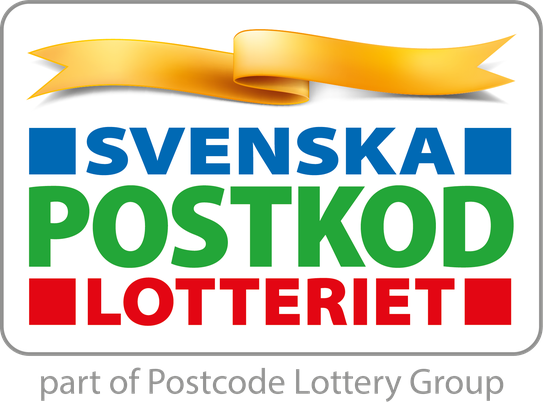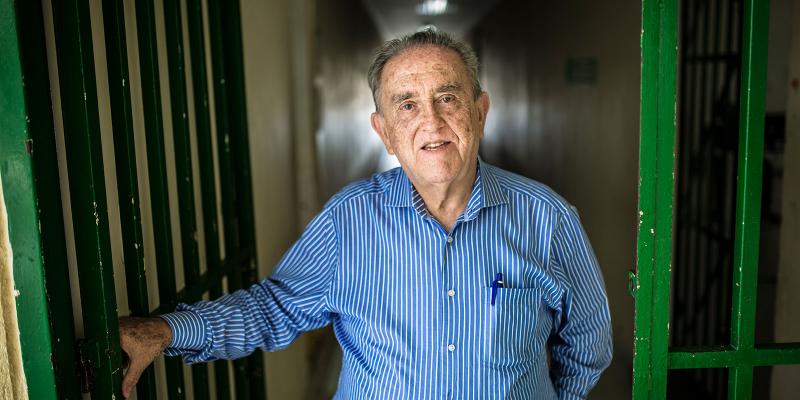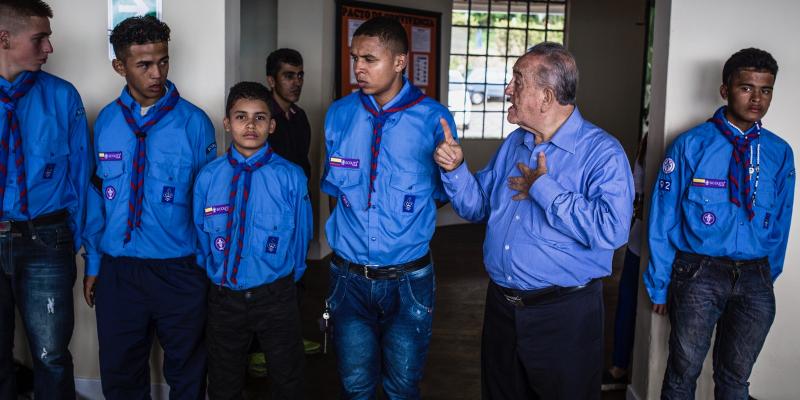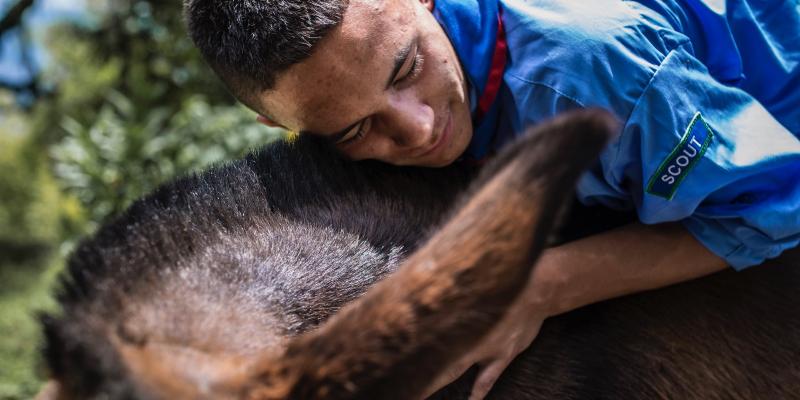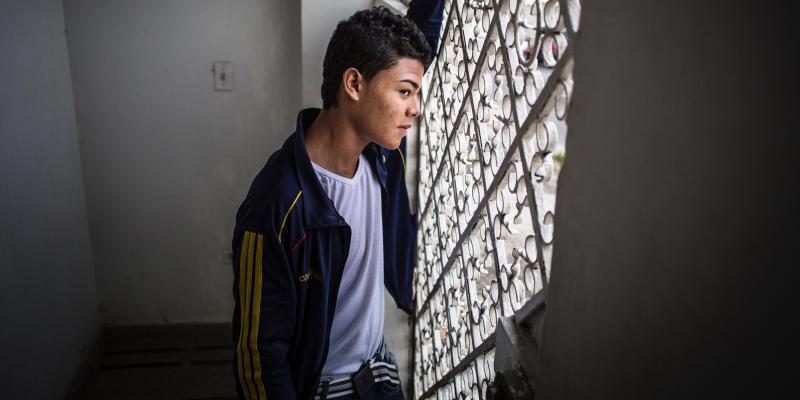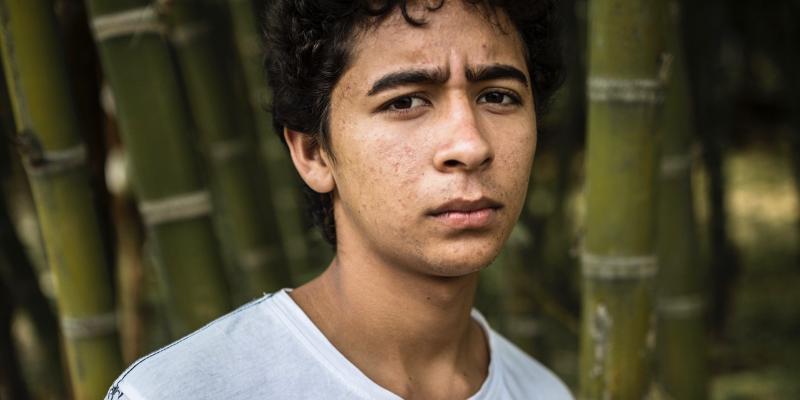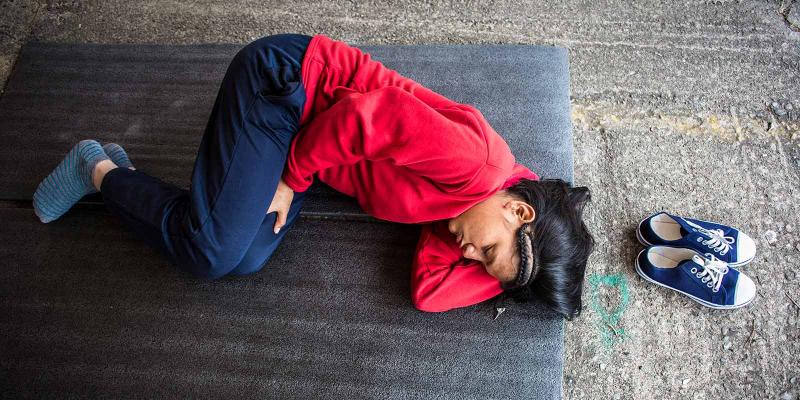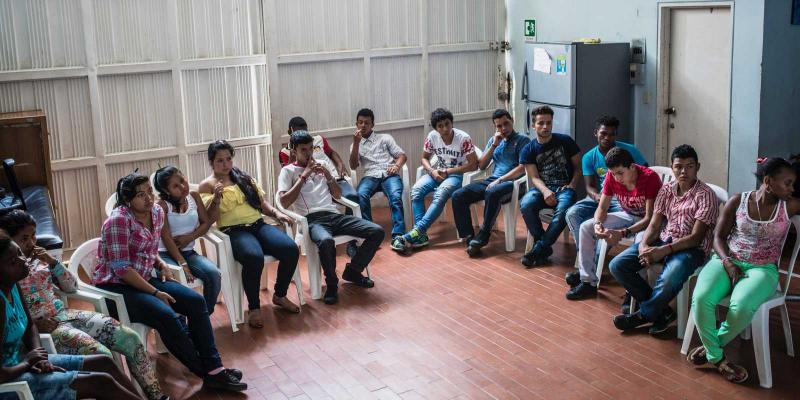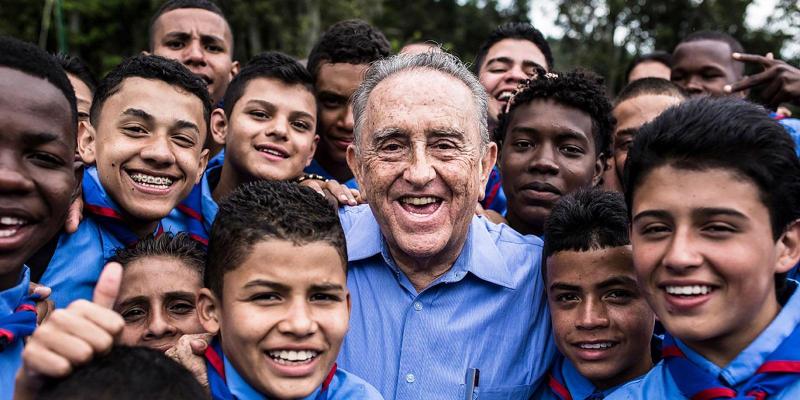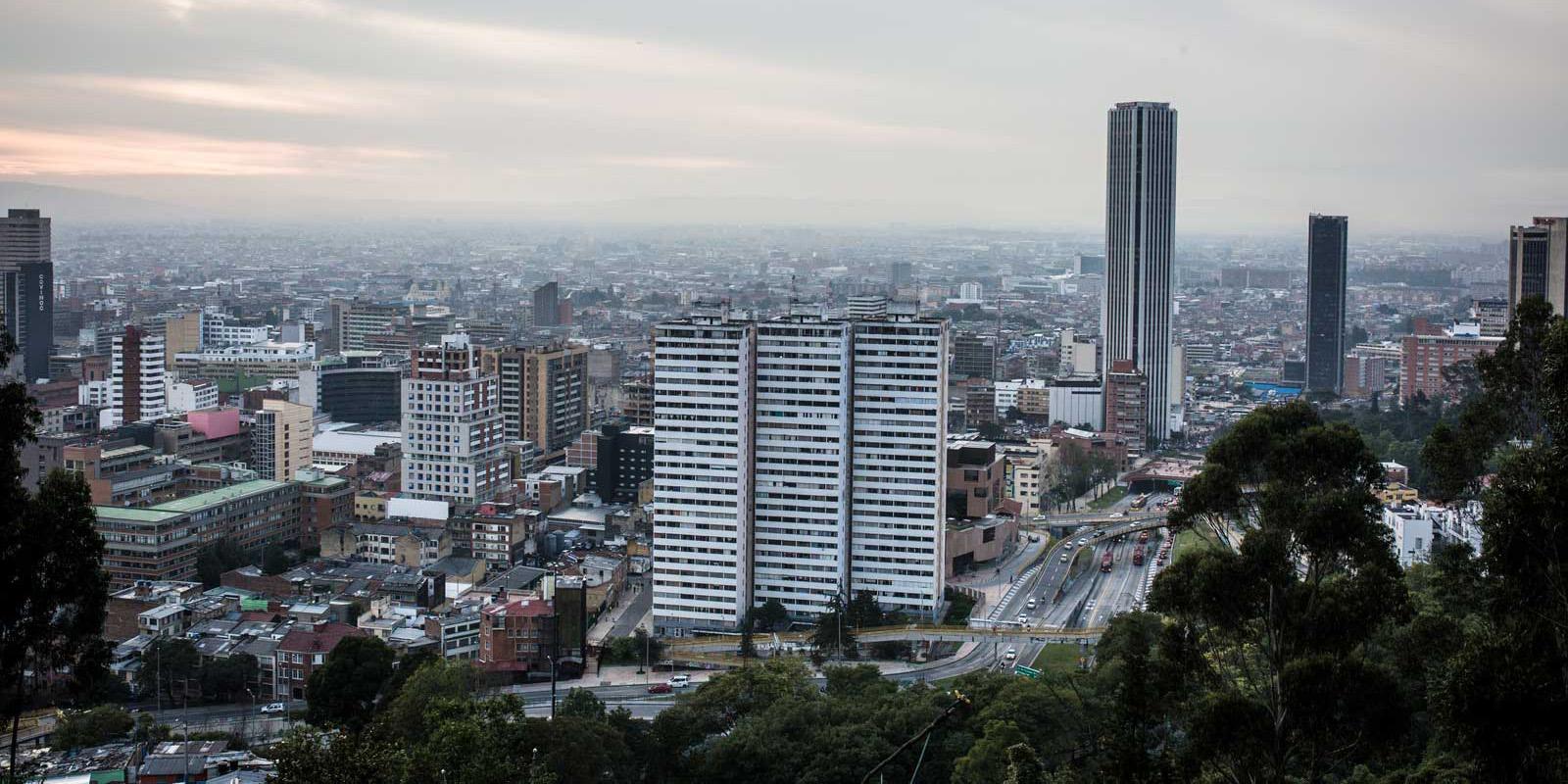
The children who have lived on the streets stay at Hogares Claret’s reception centre San Gabriel in Bogotá for two to three months. Some have come here because they were arrested by the police. Others because their parents are unable to look after them. What do they think about the help they get at Hogares Claret?
Gina, 14
“I don’t mind that we’re not allowed to leave here. I’d only be out there taking drugs. I didn’t used to want to be with mum, but I’ve had time to think here and I’ve learned a lot. We get good food. When I lived on the streets I took drugs instead of eating. I hope I can go back to my mum and my sister soon.”
Gloria, 15
“It was my parents who brought me here. I just caused arguments and ran away all the time. They hope I’ll learn to be a better person and be able to take more responsibility at home. It’s good here, they’ve got everything. When I was on the streets, I had nothing. They look after me here, and I try and help out. I understand now that I had everything before, but I didn’t appreciate it.”
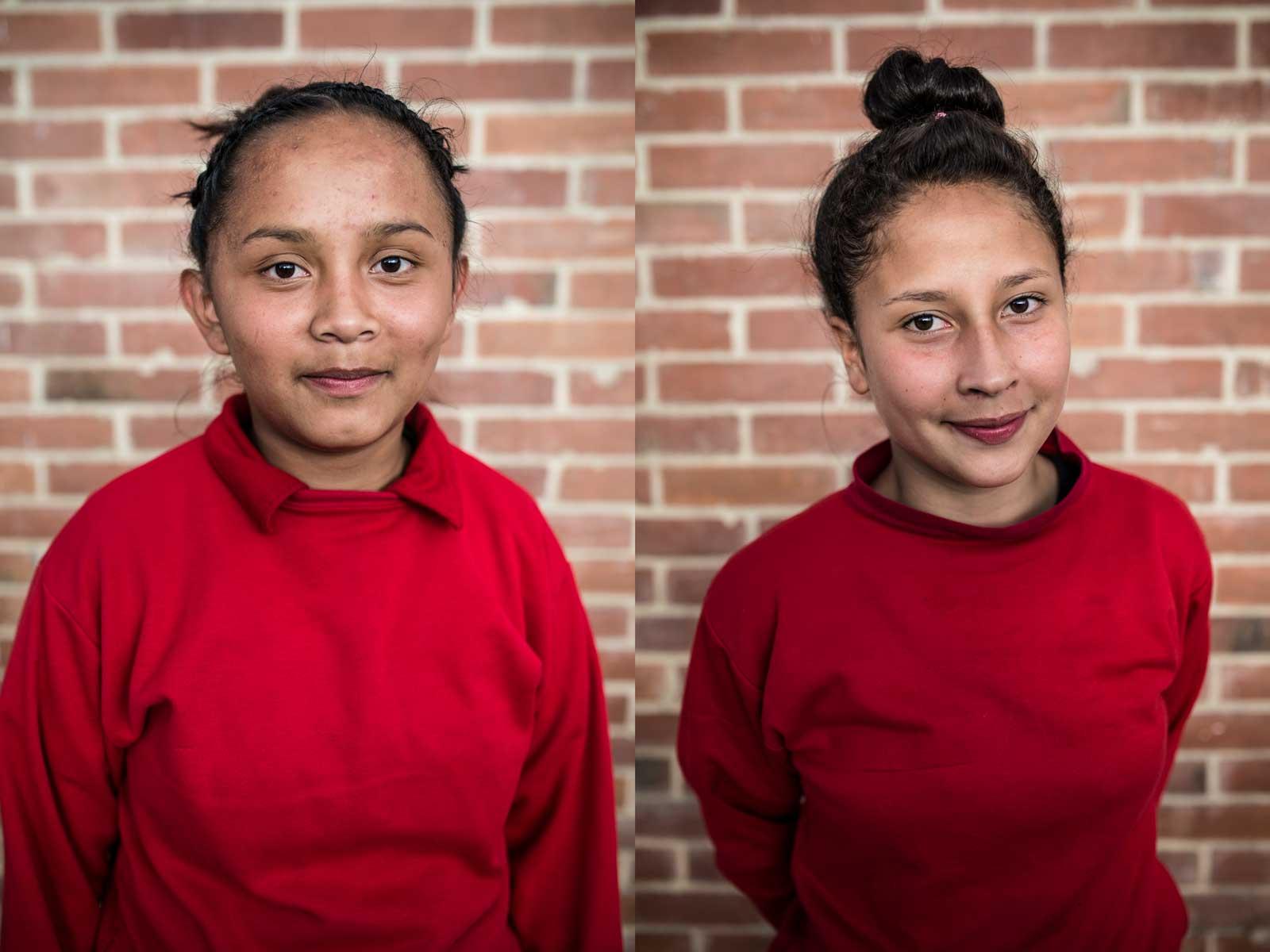
Wendy, 15
“My parents got fed up with me taking drugs. They took me to social services and asked for help. The only thing I wanted then was to find my friends, go into town and buy drugs. I hated this place at first, but now I’m group leader of my scout patrol. It feels better. I like the way they treat us here. It’s like they really view us as people.”
Daniella, 15
“It feels like they understand me here. They take good care of us. I ran away from home two years ago and I’ve been living on the streets ever since. When the police took me, they drove me to another place first. It was different from here. Even though I was actually tired of living on the streets, I still ran away because it was so bad. It’s better here.”
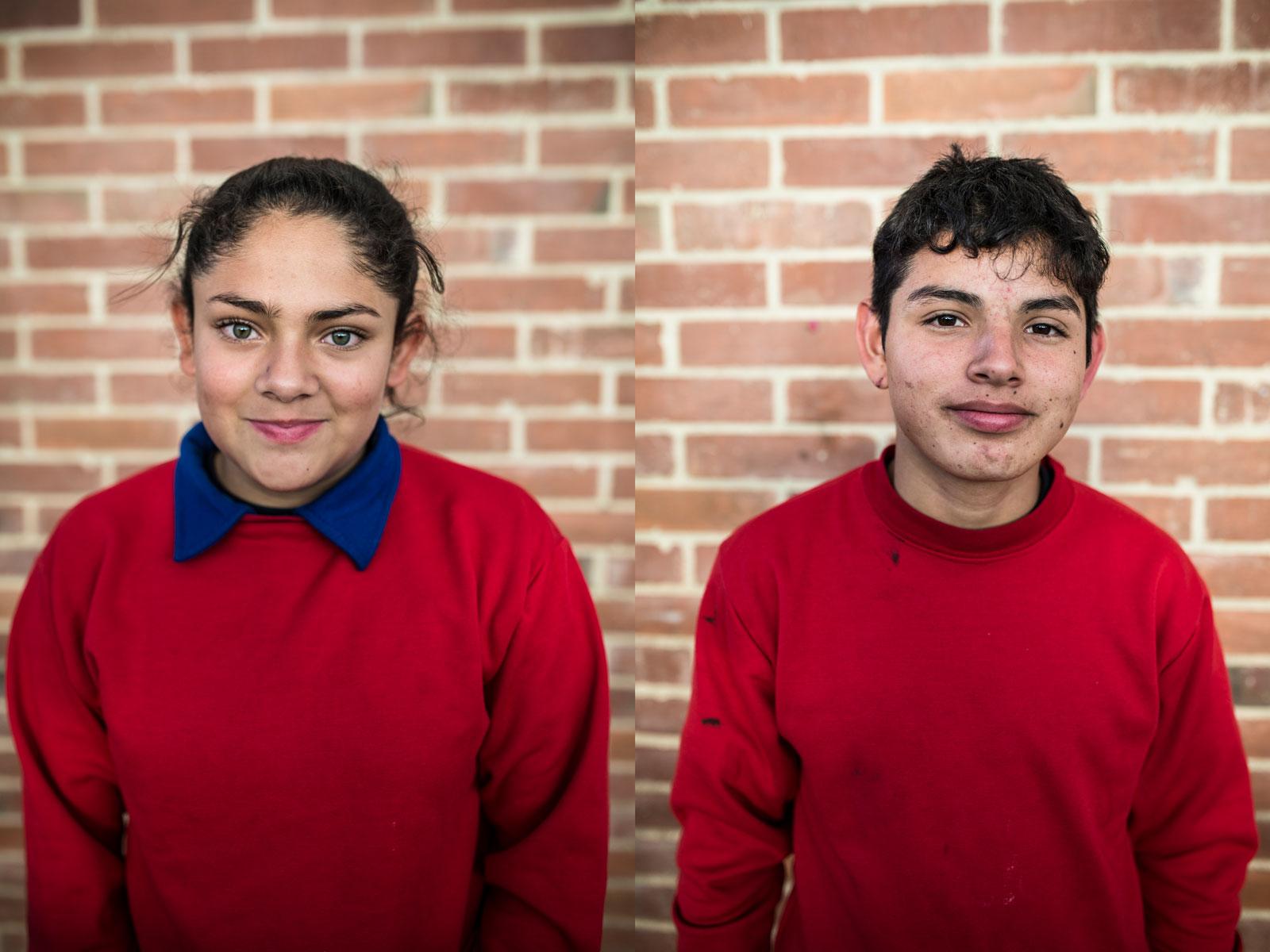
Laura, 13
“Really I’d like to go home, but it’s OK here. They have good activities and we get enough to eat and plenty of sleep. When I get home again, things are going to change. It was so unnecessary, everything that happened. There was a girl at school who took my pen. I got really angry and hit her. The school said I had to leave and my mum was so sad and angry. She locked me in my room, but I escaped. She reported me missing and when the police found me, I was brought here.”
Juan, 16
“At home they hit me and drank loads of alcohol and took drugs. It ended up with me going to the police myself. They took me to social services. I’ve been given help here. There’s always someone here I can talk to, and we’re given respect. But I get upset sometimes. I miss my girlfriend and our daughter, who is one. I hope to be able to see them soon.”
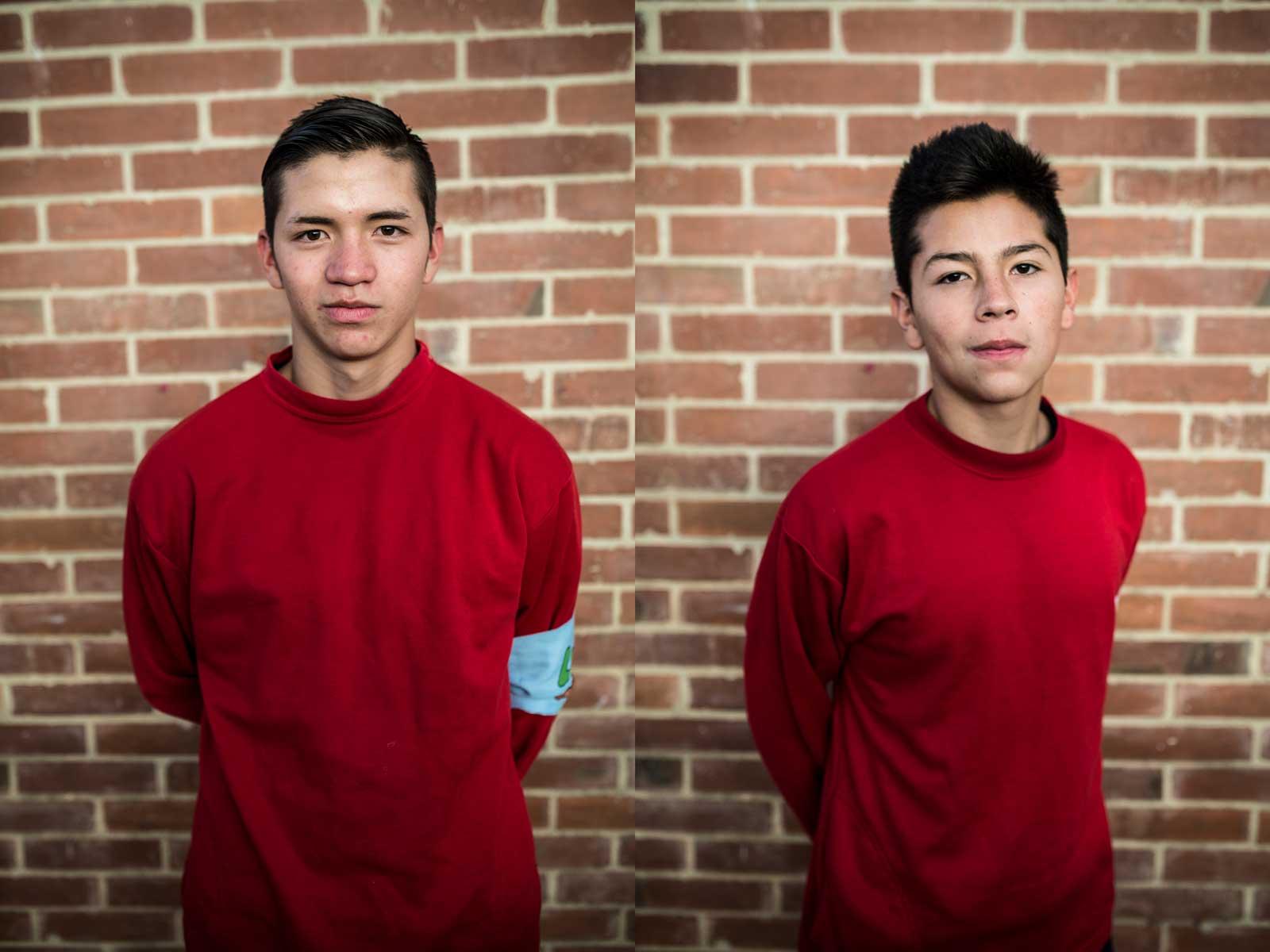
Bryan, 15
“I think I had quite a good home life. But I still hung around town looking for girls. I bought drugs. In the end my parents talked to me about it. They said that I probably needed help and called social services. They made sure I got to come here. I’m getting help here, and my family often comes and visits. It feels like I’ve changed for the better here.”
Luis, 16
“It’s so calm here. There’s always time to think about things and about life. We work a lot on ourselves: how we should live our lives and be good people. I miss my family every day. When I get out, I’m going to be with them all the time. It won’t be like before, when I just drifted around town.”
Related stories
Långgatan 13, 647 30, Mariefred, Sweden
Phone: +46-159-129 00 info@worldschildrensprize.org
© 2020 World’s Children’s Prize Foundation. All rights reserved. WORLD'S CHILDREN'S PRIZE®, the Foundation's logo, WORLD'S CHILDREN'S PRIZE FOR THE RIGHTS OF THE CHILD®, WORLD'S CHILDREN'S PARLIAMENT®, WORLD'S CHILDREN'S OMBUDSMAN®, WORLD'S CHILDREN'S PRESS CONFERENCE® and YOU ME EQUAL RIGHTS are service marks of the Foundation.
